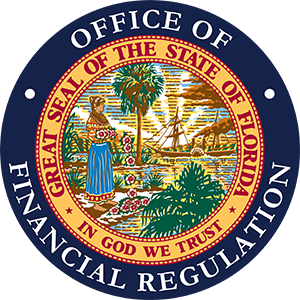Crowdfunding Offerings and Investments
This information is provided for general informational purposes only and should not be relied upon as legal interpretations by the Office, shall not supersede any part of the Florida Statutes or Florida Administrative Code, and does not constitute legal or financial advice. The Office does not endorse any third-party or guarantee the accuracy of any third-party information linked to or referenced herein.
Crowdfunding is a process of raising funds from a large number of individuals who each provide relatively small amounts of money. Crowdfunding campaigns often use an online intermediary platform and are typically conducted within a limited time frame.
Important: A company may not offer or sell securities unless the offering has been registered or falls within an exemption from registration. An offering may need to be registered or fall within an exemption from registration in more than one jurisdiction. Some crowdfunding campaigns are regulated by the U.S. Securities and Exchange Commission or state securities regulators.
Types of Crowdfunding
Donation crowdfunding is an online donation campaign for a personal project or to raise money for a non-profit organization. Platforms like Kickstarter or GoFundMe allow individuals to donate money to a project or cause.
Investment or equity crowdfunding is an online securities offering campaign utilizing an intermediary portal. The issuing company sells equity in the company, debt, or convertible stocks to investors who expect to receive a return if the company succeeds.
According to the U.S. Securities and Exchange Commission, equity crowdfunding campaigns typically raise $25,000-$250,000 and may be helpful for those businesses looking to achieve short-term funding goals. It may also be beneficial when companies don’t have access to accredited investors or if there is a strong online presence or supporter following. Equity crowdfunding may be an option for companies that do not have access to traditional business loans.
Intermediary portals typically charge a setup fee, and a percentage of the funds raised during the campaign. Companies may need to hire professional accounting and legal services before beginning a campaign.
Considerations
SEC regulation Reg CF and Florida’s limited offering exemption (FLOE) have a maximum raise amount of $5 million.
Non-accredited investors are limited in the amount they can invest in a crowdfund offering. There are no investment limits for accredited investors.
Conducting an equity crowdfunding offering can be more efficient and cost effective for startup companies in need of smaller amounts of capital.
Companies may have to connect with an intermediary portal to conduct their campaign.
- Companies usually cannot receive investor funds directly. Funds received are generally stored in an escrow account provided by the intermediary.
- Intermediary portals typically assist with communications, reporting, disclosure, and legal compliance.
Funds are generally released to the company once the funding goal is reached. Crowdfunding may require filings to be made with the SEC or state securities regulators and can require extensive compliance, reporting, due diligence, and communication with all parties involved.
Companies that have completed an equity crowdfunding offering may be subject to ongoing reporting requirements.
After a successful campaign, companies will likely need to communicate regularly with investors about their progress and developments.
- Maintaining communication with investors could be a potential administrative burden.
Selling equity or ownership in a company early in its business development may impact future growth and capital financing.
- Angel investors, investor groups, and venture capital firms who invest in a company’s later funding round may want to take an active role and demand a large percent of equity.
Preparation
Discuss all the details and terms of the offering before selecting an intermediary portal.
Companies will need to be able to clearly communicate how much money they need to raise and how the money will be used.
Companies should be prepared to share business plans, financial statements, pitch decks, and financial projections and disclose details about the company, including their management structure, liabilities, legal contracts, internal operations, market research, and regulatory compliance. Reference the appropriate notice filing form for information required for disclosure. Companies may need legal assistance to prepare disclosure documents.
Prepare marketing materials, demonstration videos, an executive summary, and an elevator pitch can help investors better understand the company.
Other Resources
U.S. Securities and Exchange Commission – Capital Raising Education for Small Businesses
U.S. Securities and Exchange Commission – Form C
Financial Industry Regulatory Authority – Regulated Funding Portals
Office of Financial Regulation – Crowdfunding Issuers
OFR Florida Limited Offering Exemption
OFR Florida Invests Local Exemption
Office of Financial Regulation – Form FL-CI
Office of Financial Regulation – Notice File via Online Services
